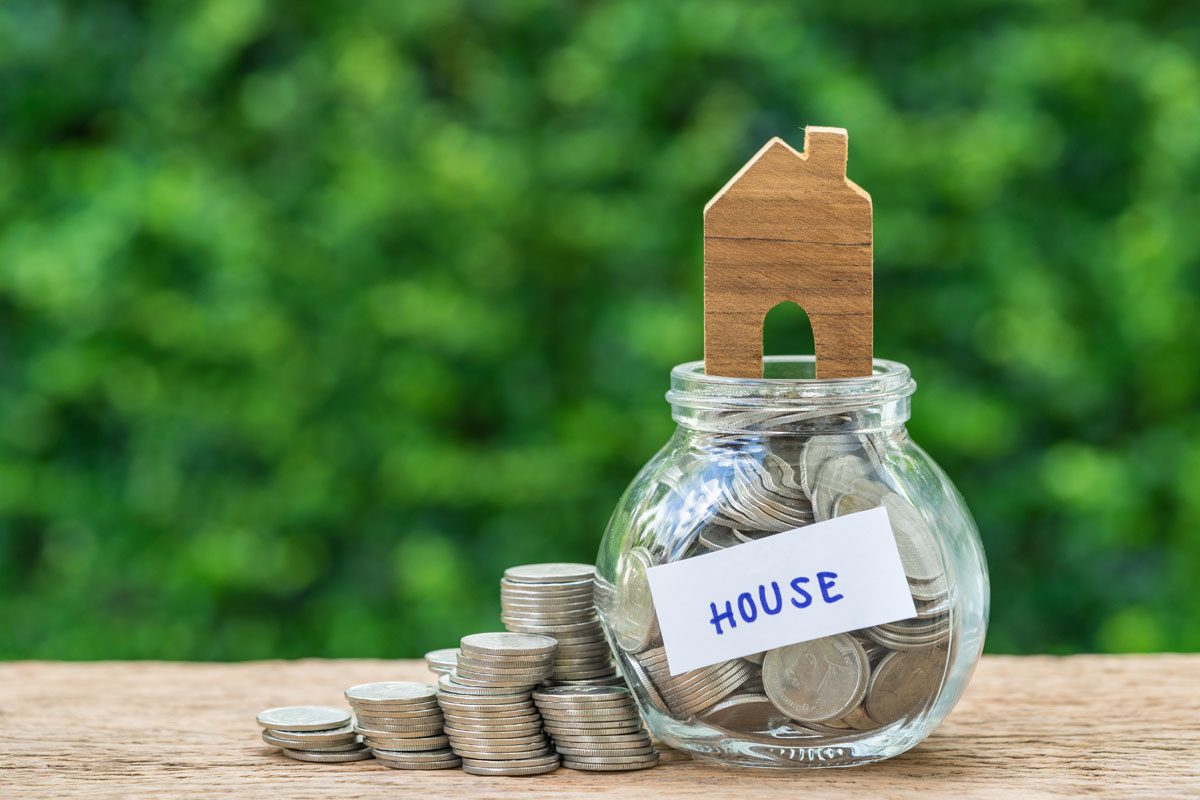Mortgage 101
The time to think about buying a home has come. Before embarking on one of the most important financial commitments of your life, understand why and how your knowledge of what a mortgage is, will help you take out the best loan for your situation.

Mortgage isn’t a very pleasant word. In English the first part of the word is literally “mort,” you know, like death? So surely it can’t be a good thing...right? Wrong. Tell me, do you currently have enough cash on you right now to buy a home? Say, oh I don’t know, some hundred thousand? No? Well I’d honestly be impressed, and maybe a little scared, if you did. But I bet one of your big financial goals, either now or at one point in your life, is to buy a home. A mortgage helps you to do that when you aren’t readily walking around with hundreds of thousands of dollars on you.
In basic terms, a mortgage is a loan. It allows you to borrow the extra money you need to finance your new home on the premise that you pay it back over the years. It would be easy enough if it weren’t for the fact that this might leave you in a bit of debt for some time. To make this expensive and complicated thing at least less complicated, we’ve covered the basics of everything you need to know about mortgages and home loans. Welcome to another class at Apruebame.com - it’s time for Mortgage 101.
What exactly is this mortgage thing?
Like I mentioned, a mortgage IS a loan, but it’s also a tad more complicated than that. When buying a home, you use this lending system called a mortgage to pay just a fraction of the cost of your home, while the lender (maybe a bank or another private lending institution) covers the rest. So far, sounds like your basic loan. Included in this process is paying back the amount lent to you, plus interest - the percentage charged by the lender - for up to 30 years. Still, maybe this doesn’t sound all too different from your student loans. But here’s the kicker: if you choose the wrong mortgage (because there’s always got to be a little risk in this stuff) and you can’t pay back the money you borrowed, you could be saying goodbye to your house.
How do I pick the right one?
RESEARCH! Always research. Different loans will have different requirements and benefits, but understand your situation, and talk to your lender about what will work best for you. Some mortgage options are funded by the government, such as:
- Federal Housing Administration (FHA) LoansA good option for someone with limited funds, starting at 3.5% interest.
- VA Loans These are available to those in the military, veterans, or eligible surviving spouses with little to no down payments and low interest rates.
You also consider the different payment plans for mortgages:
- Adjustable rate mortgages On these type of mortgages, the interest rate changes based on the market. This could be a good choice for you if you need short term, low interest rates, or if you don’t plan to be in the home long.
- Fixed rate mortgages These will never increase the interest you pay, no matter how long you’re paying off your mortgage. If you know interest rates will likely rise due to the economy, if you have a steady job, and / or you plan to make this home yours for a long time, this might be your preferred plan. Of these, you can choose from either 30-Year Fixed mortgages, arguably the most popular for the low interests and popularity, or the 15-Year Fixed mortgage, again with a lower interest rate and less time of your life dedicated to paying it off.
- Combined mortgage These types of mortgage will have fixed rates for a few years before adjusting. You’d want to do this if you want to sell your home in a few years before the rates rise
This is all great and fun, but HOW do I get one?
Get together with your lender - the organization that will be the one providing the money to make this home purchase. This will usually be a bank, but you want to make sure that you are using a lender who is reliable, reputable and trusted by other homeowners so that delays don’t cost you even more cash.
When you’ve found the right lender, you cannot forget about the importance of your credit score. Just like you need to be cautious of the trustworthiness of your lender, your lender uses your credit score to determine how likely you are to pay back your loan. With a good credit score, you’ll be more likely to be granted a loan, although there’s no specific number designating what will or won’t get you a loan. And even more, it’s not even that you won’t be granted a loan, you just may be charged a higher interest rate with a lower score.
Some upfront costs known as “points,” and are essentially prepaid interest charged by lenders. This will decrease the interest you owe in the long run but increases the cost you must pay in the beginning. It will help if you’re struggling and barely able to make that down payment in the first place.
So, during all of this, remember that you need to be conscious of your credit even way before you apply for a mortgage and begin saving for the down payment, which despite the loan, will still be a hefty cost. Don’t be fooled by cheap rates. If a lender doesn’t have a big client-base or seems “too good to be true,” it’s probably a scam. And finally, don’t be scared by the debt that this mortgage will put you in! It’s good debt (if you can believe there is such a thing) showing that you’re making strides in your financial goals and will not hurt your credit score.
Other things to beware.
We’re just looking out for you. And we know that with so much going on in purchasing your new home, you may forget to be careful about a few things! Of course, we mentioned to check your credit score, but what we didn’t mention was that you should be careful about applying for new credit cards around the same time as you’re applying for your mortgage. This is because your credit will go down a little in the process, and we don’t want your progress towards one financial goal to negatively affect another.
Although you may need a lot of help, be careful that you’re not taking out a loan that’s too big. Biting off more than you can chew might lead to an inability to make payments in the future and the loss of your home. And on that note - be sure you understand the documents you’re signing so that you don’t screw yourself over!
Finally, pay attention to the timing of your loan and get the best interest rate possible. There's so much to keep track of, but you’re an ambitious aspiring homeowner - you’ve got this.
Ready to really get things started? Check out our step-by-step how to on mortgages.





